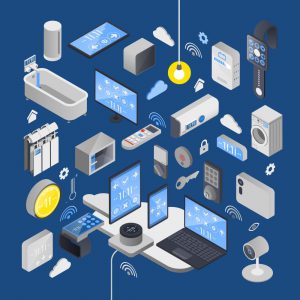IoT Devices Should Deal with Privacy Impacts for People with Disabilities
FOR IMMEDIATE RELEASE
January 31, 2019
FPF Recommends Approaches to Incorporate Privacy, Accessibility by Design
WASHINGTON, DC – The Future of Privacy Forum today released The Internet of Things (IoT) and People with Disabilities: Exploring the Benefits, Challenges, and Privacy Tensions. This paper explores the nuances of privacy considerations for people with disabilities using IoT services and provides recommendations to address privacy considerations, which can include transparency, individual control, respect for context, the need for focused collection and security.
“Internet of Things devices in homes, cars and on our bodies can improve the quality of life for people with disabilities—if they are designed to be accessible and account for the sensitive nature of the data they collect,” said Jules Polonetsky, CEO of the Future of Privacy Forum. “We expect this first-of-its-kind paper to inspire collaboration among advocates, academia, government, and industry to ‘bake in’ privacy and accessibility from the start of the design process.”
“Data-driven innovation has created new tools that can improve disabled people’s safety, mobility, and independence, leading to enhanced privacy,” said Henry Claypool, Policy Director of the Community Living Policy Center at the University of California, San Francisco, Technology Consultant to the American Association of People with Disabilities and FPF Senior Fellow. “However, companies and advocates should recognize that the IoT can bring unique privacy considerations.”
FPF recommends companies and policymakers follow these recommendations to improve the experiences of people with disabilities when they use IoT-enables devices and respect their privacy:
- Prioritize inclusive design. Accessibility and the privacy of people with disabilities should not be an afterthought for the IoT and new technology developers—people with disabilities should be included in the design of IoT technologies. The appropriate timing for integrating accessibility is during the earliest possible stage of design.
- Promote research. In order to successfully build the IoT with universal or accessible design, research—both qualitative and quantitative—is needed to understand how people with disabilities utilize the IoT and feel about the current privacy landscape of the IoT.
- Privacy by Design approaches should consider people with disabilities. Companies should take into account the sensitive nature of the data collected from the IoT used by people with disabilities and address those consideration in the design of IoT products.
- Foster cross-sector collaborations. Advocates, academia, government, and industry should work together to develop IoT solutions that meet the needs of people with disabilities.
- Enhance awareness of data risks and benefits. Policymakers should consider not only the potential enhanced risks that people with disabilities face when using the IoT, but also the enhanced autonomy that these very same technologies provide. Members of the disability community should consider becoming engaged in policy processes and voicing their views on the privacy challenges that they face when using IoT devices and services.
IoT devices and services are empowering people with disabilities to participate more fully and autonomously in everyday life by reducing some needs for human intermediaries or accommodations. In addition to the potential benefits of IoT devices and services for people with disabilities, unique privacy risks and challenges can be raised by the collection, use, and sharing of user data. Depending on the circumstances, privacy can be enhanced or diminished by IoT technologies, creating potential tensions between privacy gains and losses.
FPF received support for the paper from the Comcast Innovation Fund and consulted with the American Association of People with Disabilities (AAPD) Technology Forum.
Today, Thursday, January 31, 2019, 4:30-5:30pm ET, FPF and the Comcast Innovation Fund are hosting an event about the IoT and people with disabilities at the XFINITY Store in Chinatown, 715 7th St. NW, Washington, DC 20001. Remarks and a panel discussion will be followed by audience Q&A, refreshments and networking. The remarks and panel discussion will be streamed via Facebook Live at https://www.facebook.com/FutureofPrivacy/.
Media Contact:
Nat Wood
410-507-7898


